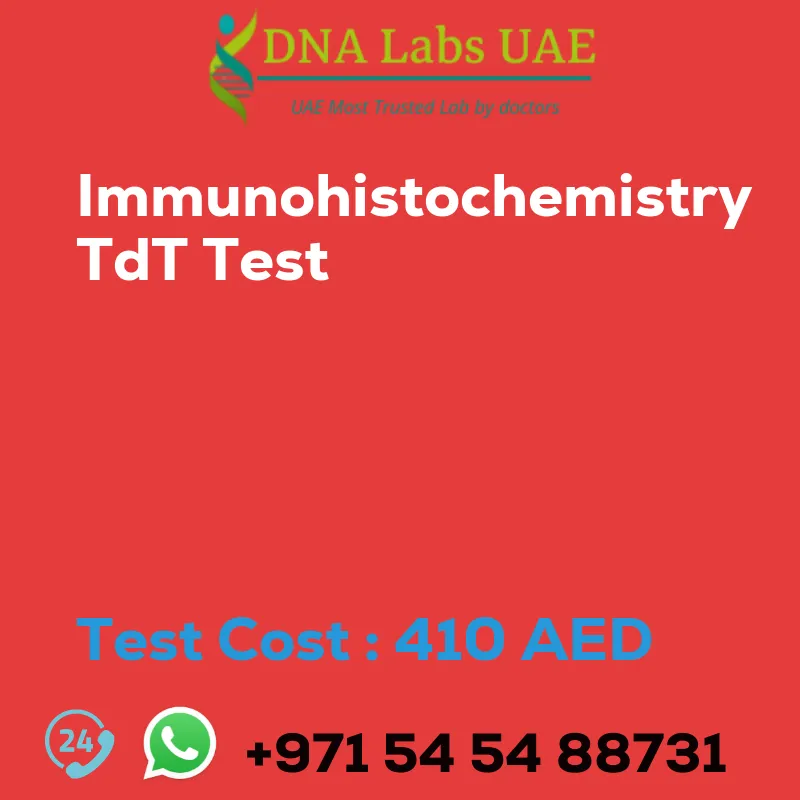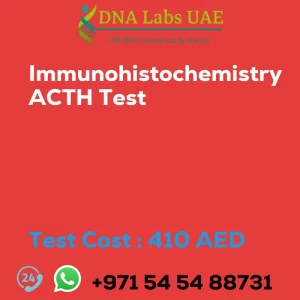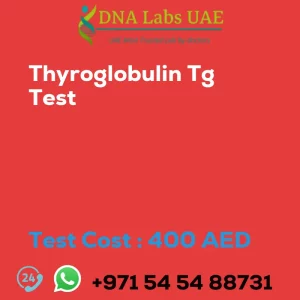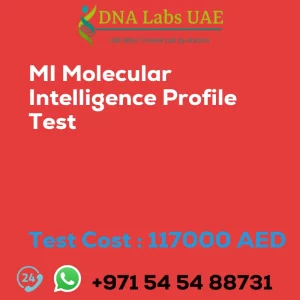IMMUNOHISTOCHEMISTRY TdT Test – DNA Labs UAE
Are you looking for information about the IMMUNOHISTOCHEMISTRY TdT Test? Look no further! DNA Labs UAE offers this test at a cost of AED 410.0. Read on to learn more about the symptoms, diagnosis, and how to get started.
Test Name: IMMUNOHISTOCHEMISTRY TdT Test
Components: Tissue sections treated with specific antibodies that bind to TdT enzyme
Price: 410.0 AED
Sample Condition
To perform the IMMUNOHISTOCHEMISTRY TdT Test, you will need to submit tumor tissue in 10% Formal-saline or a Formalin fixed paraffin embedded block. Please ship the sample at room temperature. Additionally, provide a copy of the Histopathology report, the site of biopsy, and the clinical history.
Report Delivery
Sample: Daily by 6 pm
Report Block: 5 days
Tissue Biopsy: 5 days
Tissue large complex: 7 days
Method
The IMMUNOHISTOCHEMISTRY TdT Test utilizes the immunohistochemical technique to detect the presence of TdT enzyme in tissue samples.
Test Type
This test is used for the diagnosis of cancer.
Doctor
This test is typically performed by an Oncologist or Pathologist.
Test Department
This test is conducted in the DNA Labs UAE Test Department.
Pre Test Information
Prior to the IMMUNOHISTOCHEMISTRY TdT Test, it is important to provide a copy of the Histopathology report, the site of biopsy, and the clinical history.
Test Details
The TdT (Terminal deoxynucleotidyl transferase) test is an immunohistochemical technique used to detect the presence of TdT enzyme in tissue samples. TdT is an enzyme that plays a crucial role in DNA replication and repair.
The TdT test is commonly used in diagnostic pathology to identify certain types of cancer cells, particularly lymphomas and leukemias. These cancers often exhibit abnormal levels of TdT activity, which can be detected through immunohistochemistry.
During the TdT test, tissue sections are prepared from the patient’s biopsy sample. These sections are then treated with specific antibodies that bind to TdT enzyme. The antibody-enzyme complex is visualized using a chromogenic or fluorescent detection system, which produces a color or light signal at the site of TdT activity.
The presence of TdT enzyme in the tissue sample indicates the presence of immature or abnormal cells, such as lymphoblasts or blast cells. This information is valuable in diagnosing and classifying certain types of lymphomas and leukemias.
The TdT test is often used in conjunction with other immunohistochemical markers to provide a comprehensive diagnosis. For example, it may be combined with markers such as CD20, CD3, or CD79a to differentiate between different types of lymphomas.
Overall, the TdT immunohistochemistry test is a valuable tool in the diagnosis and classification of certain types of cancers, particularly lymphomas and leukemias. It provides important information about the presence of abnormal cells and helps guide treatment decisions.
| Test Name | IMMUNOHISTOCHEMISTRY TdT Test |
|---|---|
| Components | |
| Price | 410.0 AED |
| Sample Condition | Submit tumor tissue in 10% Formal-saline OR Formalin fixed paraffin embedded block. Ship at room temperature. Provide a copy of the Histopathology report, Site of biopsy and Clinical history. |
| Report Delivery | Sample Daily by 6 pm; Report Block: 5 days Tissue Biopsy: 5 days Tissue large complex : 7 days |
| Method | Immunohistochemistry |
| Test type | Cancer |
| Doctor | Oncologist, Pathologist |
| Test Department: | |
| Pre Test Information | Provide a copy of the Histopathology report, Site of biopsy and Clinical history. |
| Test Details |
The TdT (Terminal deoxynucleotidyl transferase) test is an immunohistochemical technique used to detect the presence of TdT enzyme in tissue samples. TdT is an enzyme that plays a crucial role in DNA replication and repair. The TdT test is commonly used in diagnostic pathology to identify certain types of cancer cells, particularly lymphomas and leukemias. These cancers often exhibit abnormal levels of TdT activity, which can be detected through immunohistochemistry. During the TdT test, tissue sections are prepared from the patient’s biopsy sample. These sections are then treated with specific antibodies that bind to TdT enzyme. The antibody-enzyme complex is visualized using a chromogenic or fluorescent detection system, which produces a color or light signal at the site of TdT activity. The presence of TdT enzyme in the tissue sample indicates the presence of immature or abnormal cells, such as lymphoblasts or blast cells. This information is valuable in diagnosing and classifying certain types of lymphomas and leukemias. The TdT test is often used in conjunction with other immunohistochemical markers to provide a comprehensive diagnosis. For example, it may be combined with markers such as CD20, CD3, or CD79a to differentiate between different types of lymphomas. Overall, the TdT immunohistochemistry test is a valuable tool in the diagnosis and classification of certain types of cancers, particularly lymphomas and leukemias. It provides important information about the presence of abnormal cells and helps guide treatment decisions. |







